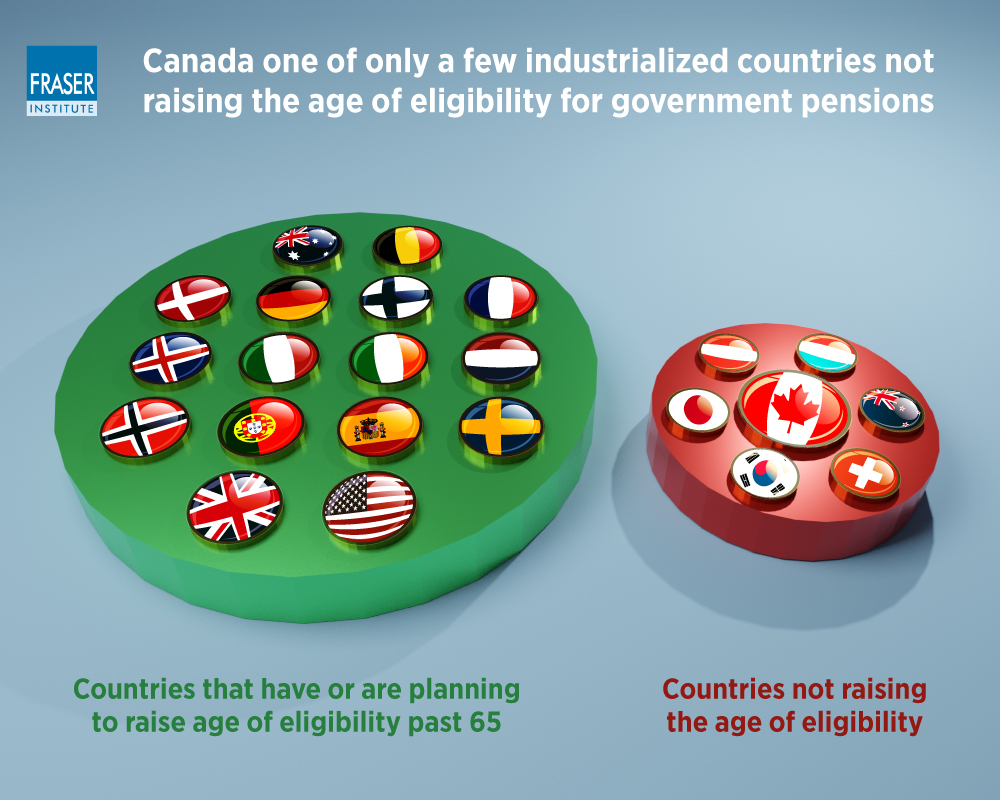Canada is among just 7 OECD countries that is not increasingly the eligibility age for government pensions

Is it time that Canada raised the age at which retirees receive payments from government retirement programs?
Canadians are living longer, with life expectancy above 82 years today, compared to 77 in 1990. They are also living more active retirements, with many choosing to keep working longer.
It’s a similar situation in most industrialised nations, but with rising costs many governments have opted to increase the age at which government pension benefits can be paid.
Canada is one of just 7 OECD member nations where the pension eligibility age is not currently set to rise. Those eligible for Old Age Security (OAS) and the Guaranteed Income Supplement (GIS) can receive the payments when they are 65.
But in the US for example, government pension payments cannot be claimed by anyone born since 1960 until they reach their 67th birthday. It is already 66 years and 8 months.
This was also proposed by the Harper government in Canada in 2012 before being cancelled by the Trudeau administration in 2016.
A BMO poll this week shows that most Canadians plan to retire at age 62, although most are contributing to an RRSP.
Rising costs
The Fraser Institute has published a new report called Age of Eligibility for Public Retirement Programs in the OECD 2022 Update, in which authors including senior fellow Ben Eisen look at the wider impact of current policy.
It found that 16 of the 22 countries covered have increased (or plan to increase) retirement program age thresholds above 65. Five of the nations - Denmark, Finland, Italy, the Netherlands, and Portugal – now link eligibility increases to life expectancy.
“Due to our aging population, Canadians will see increased spending on health care and income support for seniors, that will increasingly place significant pressure on government finances, risking the need for major tax increases and/or continued borrowing,” said Eisen.
If all proposed changes are completed, Canada will tie for the lowest retirement age among OECD high-income countries. The cost of maintaining this is forecast to be more than $10 billion by 2030.




